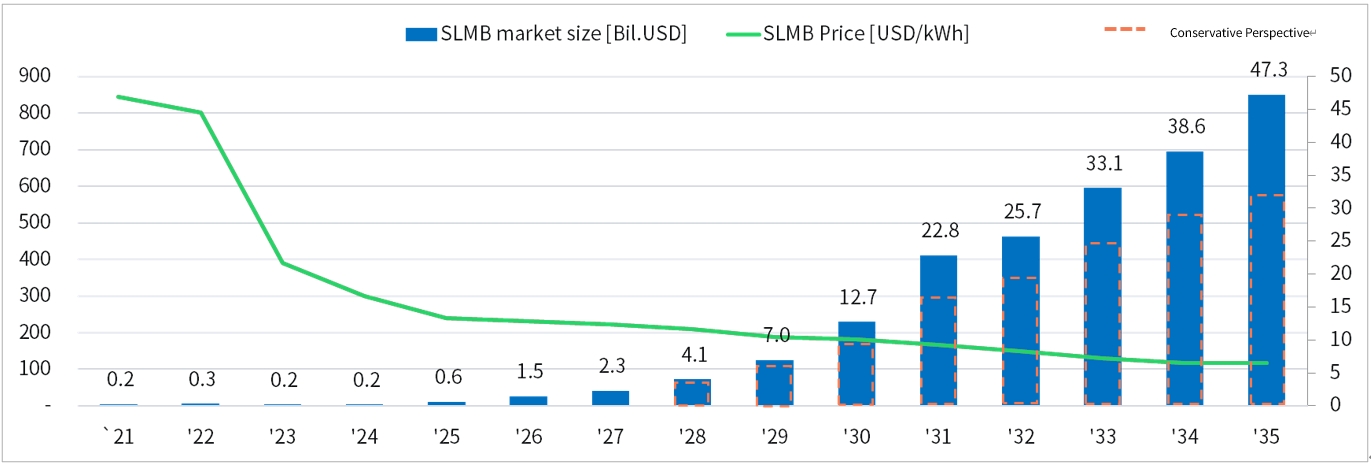Lithium Metal Battery Market Expected to Reach as High as US$ 47 Bil by 2035
The price of SLMB(Solid lithium metal battery), to which lithium metal anode(20μm Li foil) is applied, is expected to be approximately 120 USD/kWh in 2035, which is equivalent to the market size of about US$ 200 million in 2024. The market is expected to reach US$ 32 billion (from a conservative perspective) and up to US$ 47 billion (from an optimistic perspective) by 2035.

LMB Price and Market Size Outlook (Source: <2025> Next-gen LMB Technology Development Status and Market Outlook, SNE Research)
SNE Research
released <2025> Next-generation Lithium Metal Battery Technology Development
Status and Market Outlook report to lay out the outlook for lithium-metal
battery which is regarded as one of the promising next-generation batteries in
future. The report suggests market forecasts based on the expansion of demand
for technology development in high-energy applications such as electric
vehicles and urban air mobility (UAM) as well as the possibilities in
commercialization of lithium metal anode.
Lithium metal
battery, a next-generation solution with high energy and density surpassing the
limit of the existing lithium-ion battery, has drawn attention from the related
industry as one of the key energy sources for electric vehicles, drones, and
urban air mobility, requiring high energy for operation.
To be specific,
the utilization of lithium metal anode, of which theoretical capacity is
approximately 10 times that of lithium-ion battery, can dramatically increase energy
storage efficiency. This will play a pivotal role in making batteries smaller
in size and realizing a long-range drive.
However, the lithium dendrite issue and other technical issues such as declining cycle life and damages in SEI layer are regarded as major hurdles delaying the commercialization of lithium metal batteries.
In order to
address the issues, there have been active research and development activities
in improving the interface control technology and innovating the cell designs.
LG Energy Solution developed ‘borate-pyran based liquid electrolyte’ in cooperation
with KAIST, increasing the charging/discharging efficiency and energy density
of lithium metal battery. In addition, Lotte Chemical developed technology to
manufacture separator coating materials which suppress the formation of
dendrites.
The development
of lithium metal batteries is at a turning point where technological challenges
and commercial opportunities co-exist. At this stage, it is necessary for
battery makers to secure related technologies in advance and pursue material
and process innovation in order to preoccupy the initiative in the
next-generation battery market.
SNE Research forecasts that, if proper policy supports and organic cooperation in the industry are provided together, lithium metal battery can position itself as a key technology to lead a new paradigm shift in the future battery industry.

